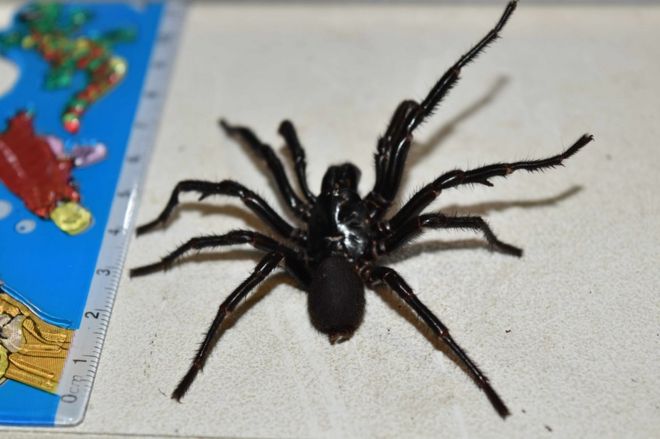Spider milk
Posted: Mon Jan 25, 2016 7:46 am
A deadly funnel-web spider with a leg span of 10cm (about 4in) is the largest specimen ever handed in to Australia's only venom-milking programme.
The spider, named Big Boy, has been handed to the Australian Reptile Park, which milks spiders to make anti-venom.
The park's venom programme supervisor, Billy Collett, said he had not heard of a bigger specimen.
"There might be one at a museum, but this is the biggest one we've had in our venom programme," Mr Collett said.
Big Boy is a male Sydney funnel-web spider, which is the deadliest spider in Australia and one of the most venomous in the world.
The average leg span of a funnel-web is between 6cm and 7cm.
Mr Collett said earlier reports that Big Boy's size was 7.5cm were based on an incorrect measurement taken when the spider's legs were not fully extended.
Big Boy will now become one of more than 500 funnel-webs that are milked for venom at the Australian Reptile Park.
"We get them into a defence position and with a glass pipette we vacuum the venom right off their fangs," Mr Collett said.
The venom is used in the production of anti-venom for treating funnel-web bites, which can be fatal.
The Australian Reptile Park encourages adults to collect funnel-webs if they come across them in the wild so they can be used for venom milking.
Spider facts
Named after their irregularly-shaped webs, funnel-web spiders live in moist habitats - such as under logs or shrubbery - or rotting parts of trees.
They sometimes fall into swimming pools, where they can live up to 30 hours under water.
Their venom can lead to heart collapse, affect the nervous system and intestines, and cause difficulty in breathing.
There have been 13 recorded deaths from funnel-web spider bites in Australia - nobody has died since the anti-venom programme began.
Sources: Australian Museum, US National Library of Medicine
